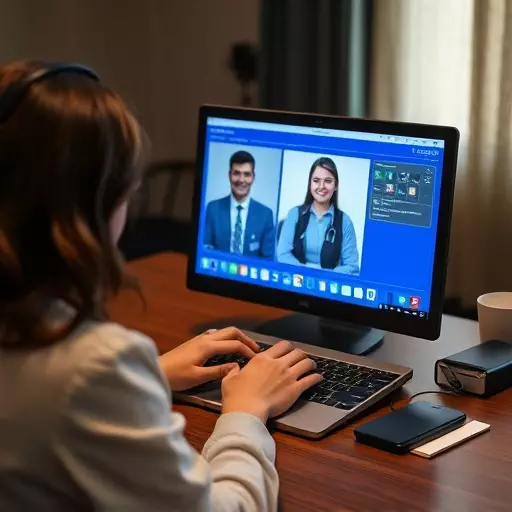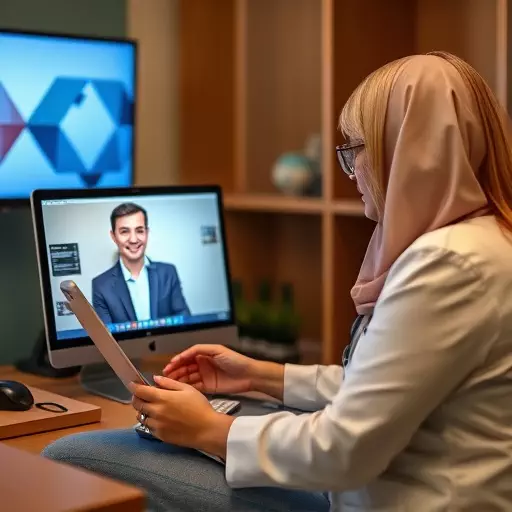Rural communities in Warren, Troy, and Farmington Hills face challenges with telehealth Ozempic consultations due to limited internet access and outdated devices. Overcoming these technological barriers is crucial to bridge the digital divide and ensure equal healthcare access. Addressing privacy concerns through robust security measures and transparent communication builds trust among patients engaging in telemedicine weight loss care. By providing technical support, secure platforms, and clear explanations, healthcare providers can improve patient satisfaction, adherence, and health outcomes for rural communities.
In the digital age, telehealth Ozempic consultations have revolutionized weight management, yet challenges persist, particularly in rural areas. This article explores strategies to improve trust and access through transparency. We delve into understanding the unique difficulties faced by patients in Warren-Troy-Farmington Hills and similar rural communities, focusing on addressing privacy concerns and overcoming technological barriers. By enhancing open communication and implementing robust data privacy measures, telehealth Ozempic consultations can become more inclusive and effective for all.
- Understanding the Challenges of Telehealth Ozempic Consultations in Rural Areas
- Enhancing Transparency: Building Trust through Open Communication and Data Privacy Measures
- Strategies to Overcome Technological Barriers and Ensure Inclusive Care for All Patients
Understanding the Challenges of Telehealth Ozempic Consultations in Rural Areas

In rural areas like Warren, Troy, and Farmington Hills, telehealth Ozempic consultations present unique challenges. One significant hurdle is overcoming technological barriers; many residents lack consistent access to high-speed internet or possess outdated devices, hindering seamless participation in virtual appointments. This digital divide exacerbates existing healthcare disparities, ensuring that rural patients may not benefit from the same level of care as their urban counterparts.
Additionally, privacy concerns are paramount in telemedicine weight loss care. Rural communities often have smaller populations, increasing the risk of identifying individuals during online consultations. Addressing these issues is crucial for building trust and encouraging widespread adoption of telehealth Ozempic services. Effective strategies include providing technological support, ensuring robust data security measures, and educating patients on their rights and the safeguards in place to protect their privacy.
Enhancing Transparency: Building Trust through Open Communication and Data Privacy Measures

Enhancing Transparency: Building Trust through Open Communication and Data Privacy Measures
In telehealth Ozempic consultations, building trust starts with transparency. Rural patients in Warren-Troy-Farmington Hills and beyond often face unique challenges, including technological barriers that can hinder access to care. To overcome these hurdles, providers must prioritize open communication, ensuring patients understand the consultation process, expected outcomes, and potential risks. This involves clear explanations of how data is collected, stored, and used, addressing privacy concerns head-on. Transparent data privacy measures, such as secure data encryption and patient consent processes, are essential to fostering trust in telemedicine weight loss care.
By implementing these practices, healthcare professionals can create an environment where patients feel empowered and engaged, actively participating in their treatment plans. This open approach not only improves patient satisfaction but also encourages adherence to medical advice, leading to better health outcomes. In addressing technological and privacy barriers, telehealth Ozempic consultations can become more inclusive and effective for rural communities seeking weight loss support.
Strategies to Overcome Technological Barriers and Ensure Inclusive Care for All Patients

In ensuring inclusive care, it’s crucial to overcome technological barriers that may prevent certain patient groups, such as those in rural areas, from accessing telehealth Ozempic consultations in Warren-Troy-Farmington Hills. One strategy involves providing accessible digital platforms and offering technical support to bridge the digital divide. This includes supplying devices like tablets or computers and ensuring reliable internet connectivity for patients who lack them at home.
Privacy concerns are paramount in telemedicine weight loss care, especially when sensitive health data is exchanged virtually. Implementing robust security measures, such as encryption protocols and secure patient portals, can address these worries. Education and clear communication about privacy policies also foster trust among patients, assuring them that their information remains confidential during telehealth Ozempic consultations.
